Publications By Author : Maureen Barasa
29 Found
| Date | Details | Document |
|---|---|---|
Fri, Aug 9, 2024 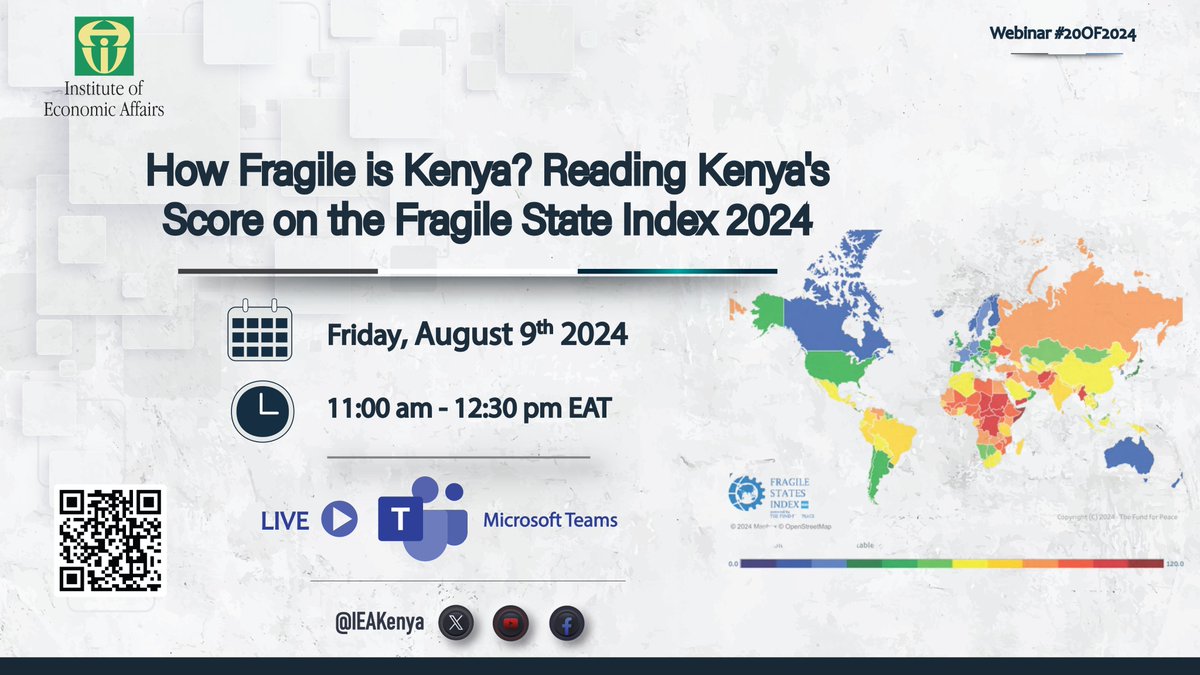 |
Webinar #20/2024: How Fragile is Kenya?; Reading Kenya’s Score on the Fragile State Index 2024Author(s) Kwame Owino, Maureen Barasa,Theme: Economic Literacy, |
File Size: 294.09 KB No of Downloads: 82. |
Wed, Jul 17, 2024  |
And Then, Floods…A critical macroeconomic assessment of IMF Conditionality on Kenya, 2021-presentAuthor(s) Kwame Owino, Maureen Barasa, Peter Doyle,Theme: Public Debt, By April 2021, in the context of long-standing deep growth shortfalls, a heavily overvalued exchange rate, an excessively loose fiscal stance, and an elevated public debt stock, Kenya’s prospects were threatened by rising global interest rates, a large bullet payment due, and droughts.
What was needed was an IMF program to deliver an immediate change in the policy mix, with a sharp front-loaded fiscal consolidation to allow a monetary loosening sufficient to correct the exchange rate and inward orientation while keeping inflation on target. But the total fiscal correction should not have been at the expense of medium-term growth, even if that required debt write-offs to reconcile it debt sustainability. And the entire package should also have been resilience to further shocks.
But that was not the program that Kenya got. The program misdiagnosed misalignment, thus back-loaded fiscal adjustment, and required medium-term primary fiscal balances well above global best practice at the expense of growth potential, all reflected in relentless tax increases. And when its conditionality on the Central Bank of Kenya turned out to be mis specified—including that in practice it treated a large non-permanent relative food price shock as a matter only of inflation—that was not corrected. So, the program also delivered a monetary stance which was too tight, impeding the necessary correction in the exchange rate, all at the expense of short-run growth as well.
These basic failures of quality control at the IMF meant that the program achieved neither its stated goals nor the fundamental correction that was required—hence major nationwide social unrest.
A reset of the program for 2024/25 should be led by an immediate big relaxation in monetary policy, an unchanged underlying primary balance outturn of a deficit of 1 percent of GDP remaining there thereafter, leaving revenue ratio targets to the authorities, and activating a targeted program of income support given food price shocks. If that requires debt write offs to secure sustainability, those should be calibrated against a medium-term primary deficit of 1 percent of GDP. Alongside a major retrenchment in the number of conditions and an increase in IMF transparency are necessary.
|
File Size: 12.45 MB No of Downloads: 2225. |
Thu, May 9, 2024  |
Webinar #12/2024: Refuting the Fallacy:Kenya Needs a Strong CurrencyAuthor(s) Kwame Owino, Maureen Barasa,Theme: Economic Literacy, |
File Size: 2.59 MB No of Downloads: 193. |
Tue, Apr 2, 2024 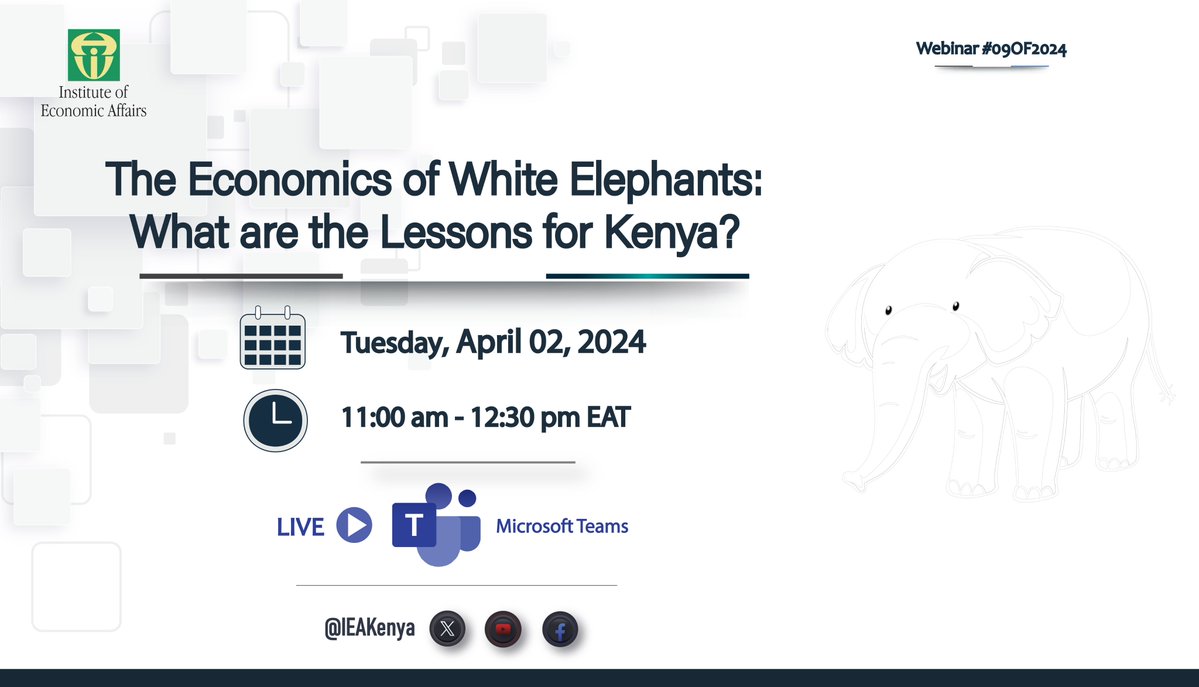 |
Webinar #9/2024: The Economics of White Elephants: What are the Lessons for Kenya?Author(s) Kwame Owino, Maureen Barasa,Theme: Economic Literacy, This webinar presentation on The Economics of White Elephants: What are the Lessons for Kenya? was done on Tuesday, 2nd April 2024. |
File Size: 1.26 MB No of Downloads: 266. |
Thu, Mar 7, 2024 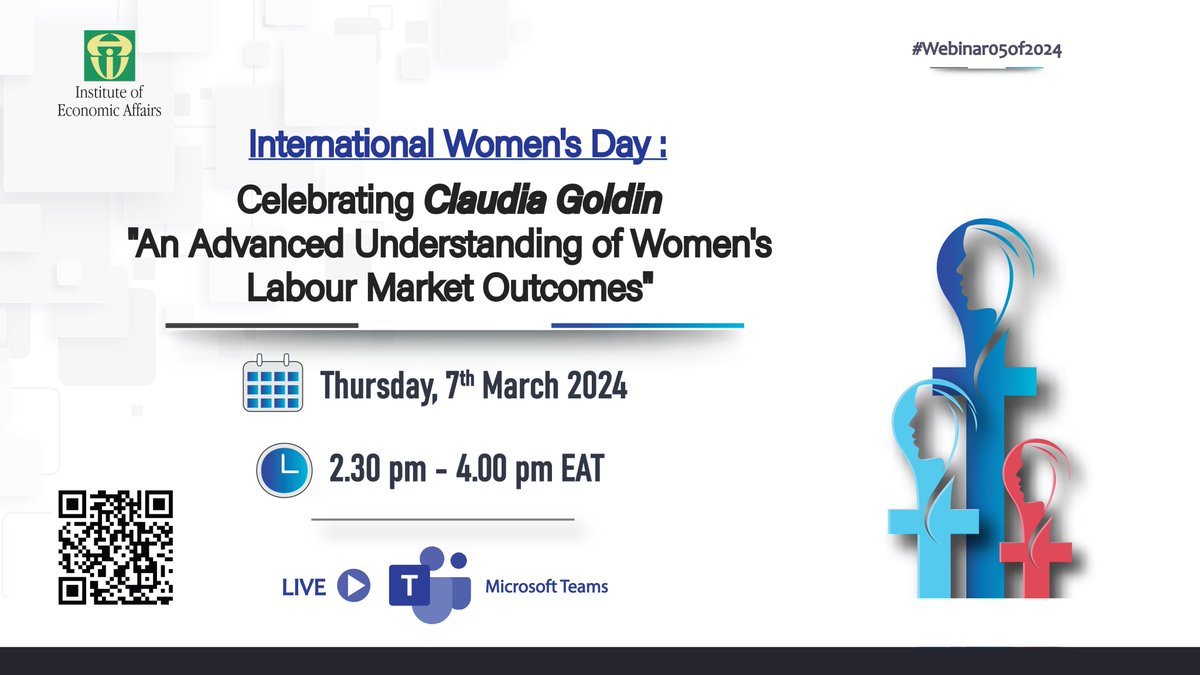 |
IEA Kenya Webinar #5/2024: International Women’s Day: Celebrating Claudia Goldwin “An Advanced Understanding of Women’s Labour Market Outcomes”Author(s) Fiona Okadia, Maureen Barasa,Theme: Economic Literacy, Fiona Okadia and Maureen Barasa made this presentation during a webinar on International Women’s Day: Celebrating Claudia Goldwin “An Advanced Understanding of Women’s Labour Market Outcomes”, held on Thursday, 7th March 2024 |
File Size: 869.98 KB No of Downloads: 193. |
Fri, Feb 23, 2024  |
Why is the Global Trade in Integrated Circuits a Development Question?Author(s) Emmanuel Wa-Kyendo, Maureen Barasa,Theme: International Trade, Integrated circuits represents an unprecedented convergence of scientific advancements in materials, efficiency in production processing and market demand. In this essay, it is argued that due to this explosive convergence in science and trade, whether or not African policy makers recognize the fact, the global trade in ICs is and will continue to be a development question. The division of labour and specialization and comparative advantage has seen a handful of firms and a selection of countries principally in East Asia and North America appropriate the most important share of the consumer surplus in IC production. Lacking the comparative advantage to produce ICs, African households, firms and governments as a net consumer of the product remain beneficiaries of significant consumer surplus windfalls. Without the IC, Africans would be considerably poorer. Overall, African households, firms and governments are consumers of ICs both in the direct and indirect markets. |
File Size: 350.42 KB No of Downloads: 300. |
Wed, Aug 9, 2023 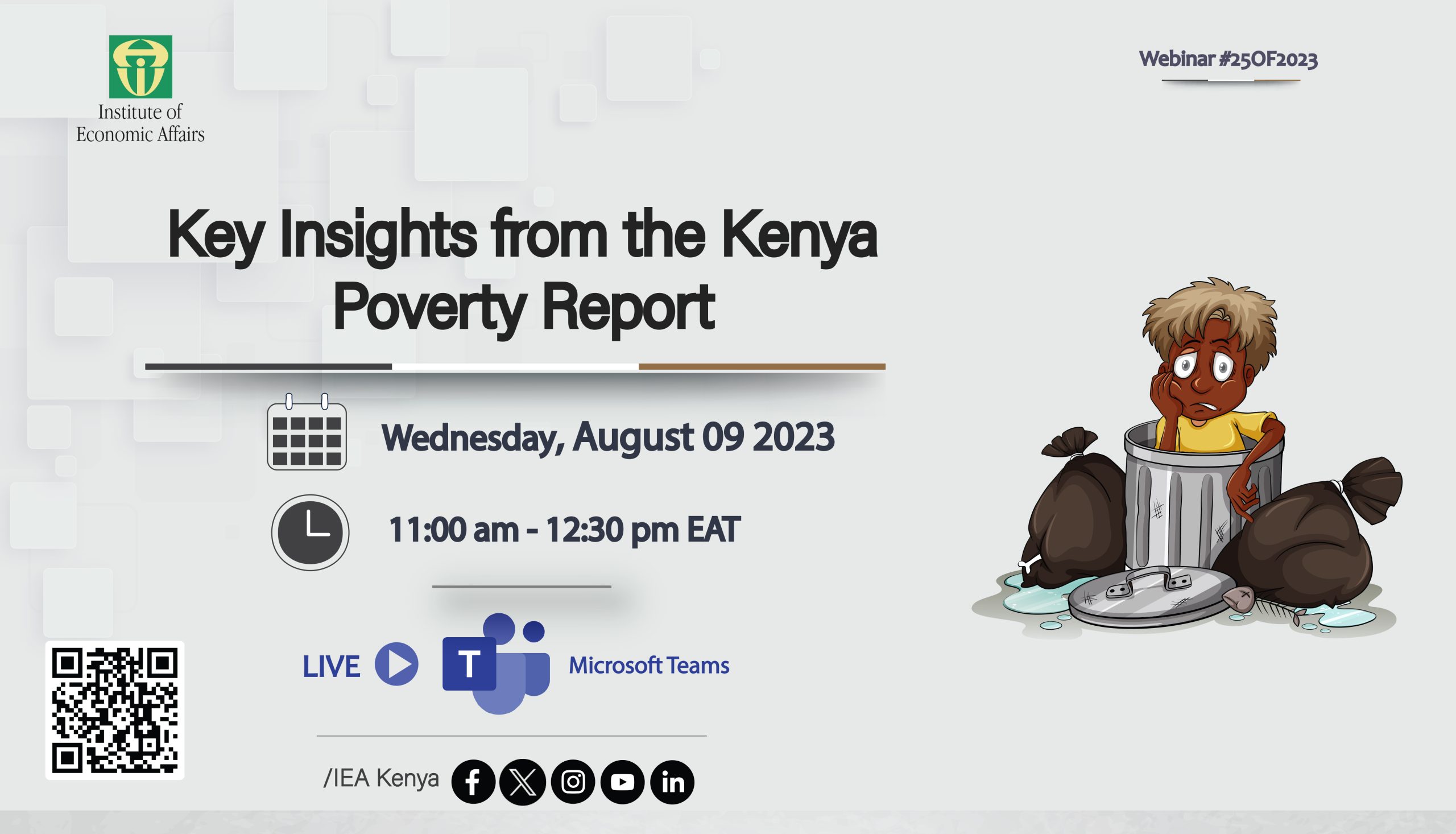 |
IEA Kenya Webinar #25/2023: Key Insights from the Kenya Poverty ReportAuthor(s) Kwame Owino, Maureen Barasa,Theme: Economic Development, Economic Growth, This presentation was made by Kwame Owino, Maureen Barasa and Noah Wamalwa during a webinar on Key Insights from the Kenya Poverty Report held on Wednesday, 9th August 2023. |
File Size: 2.42 MB No of Downloads: 507. |
Tue, Jul 25, 2023 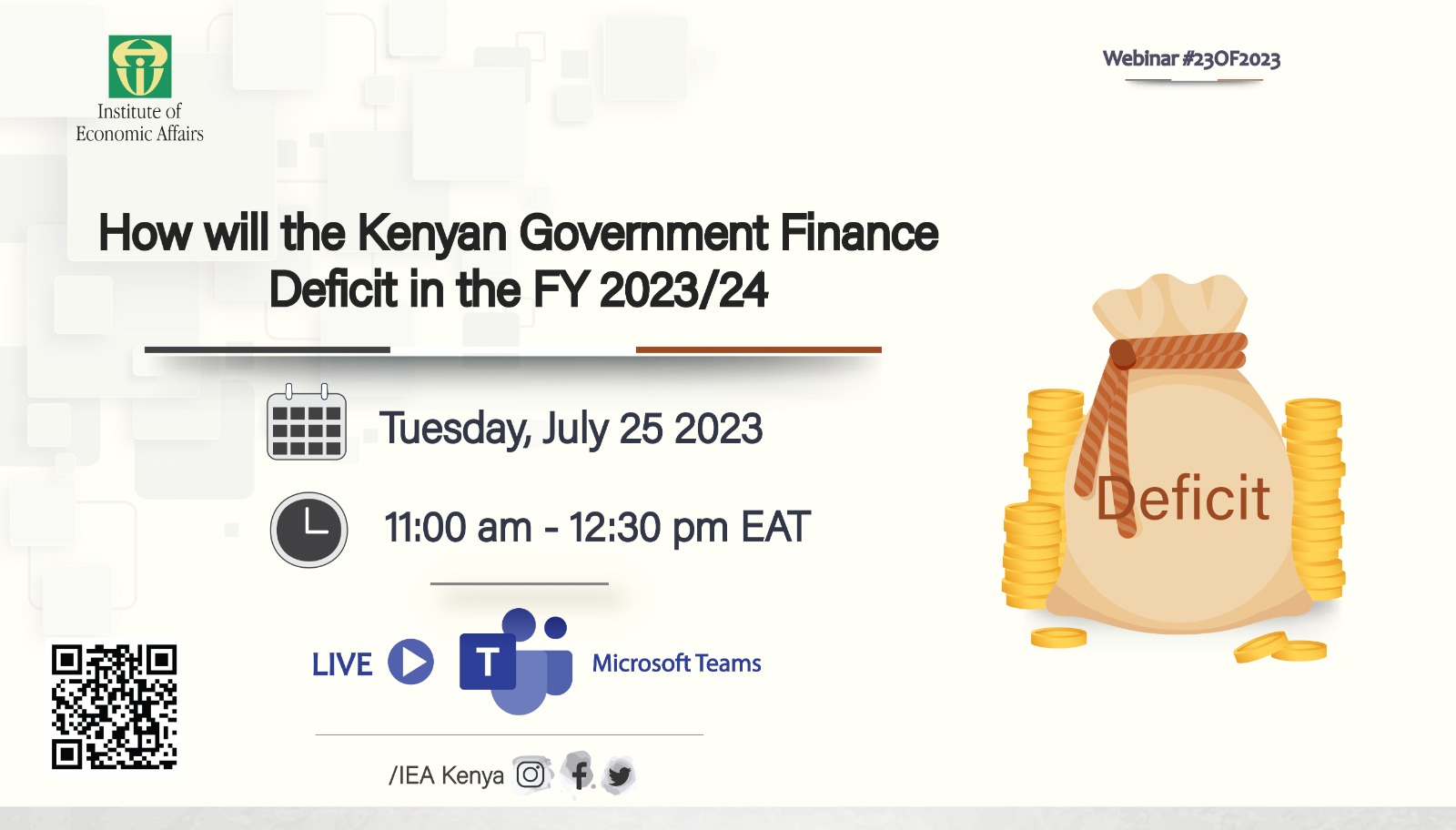 |
IEA Kenya Webinar #23/2023: How Will The Kenyan Government Finance Deficit in The FY 2023/24Author(s) Kwame Owino, Maureen Barasa,Theme: Finance, This presentation was made by Maureen Barasa and Kwame Owino during a webinar on How Will The Kenyan Government Finance Deficit in The FY 2023/24 held on Tuesday, 25th July 2023 |
File Size: 381.75 KB No of Downloads: 473. |
Mon, Jul 24, 2023 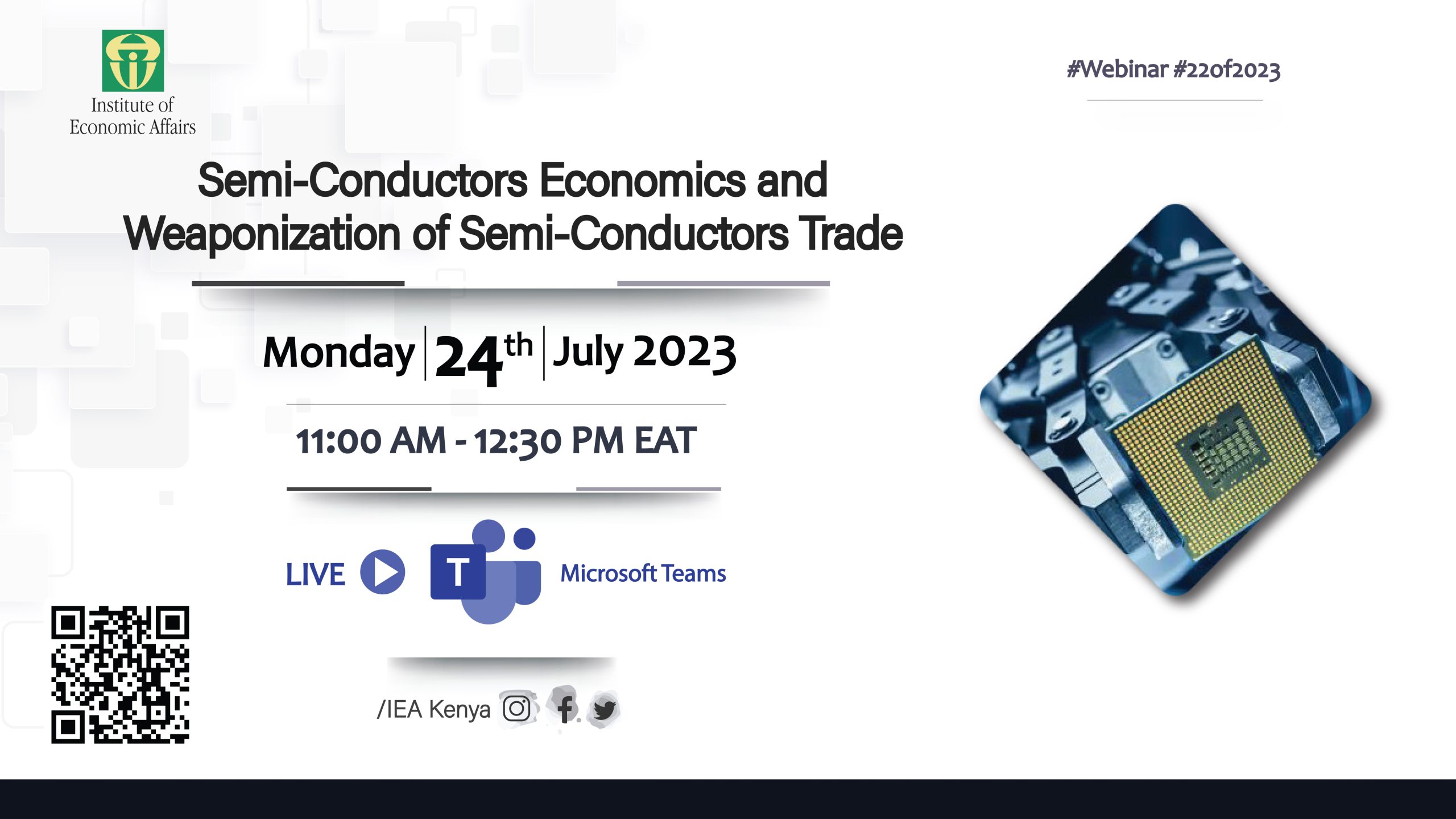 |
IEA Kenya Webinar #22/2023: Semi-Conductors Economics and Weaponization of Semi-Conductors TradeAuthor(s) Emmanuel Wa-Kyendo, Maureen Barasa,Theme: semi conductor, This presentation was made by Emmanuel Wa-Kyendo and Maureen Barasa during the Virtual public forum on Semiconductor Economics and Weaponization of the Semiconductor Trade held on Monday, 24th July 2023. |
File Size: 2.63 MB No of Downloads: 336. |
